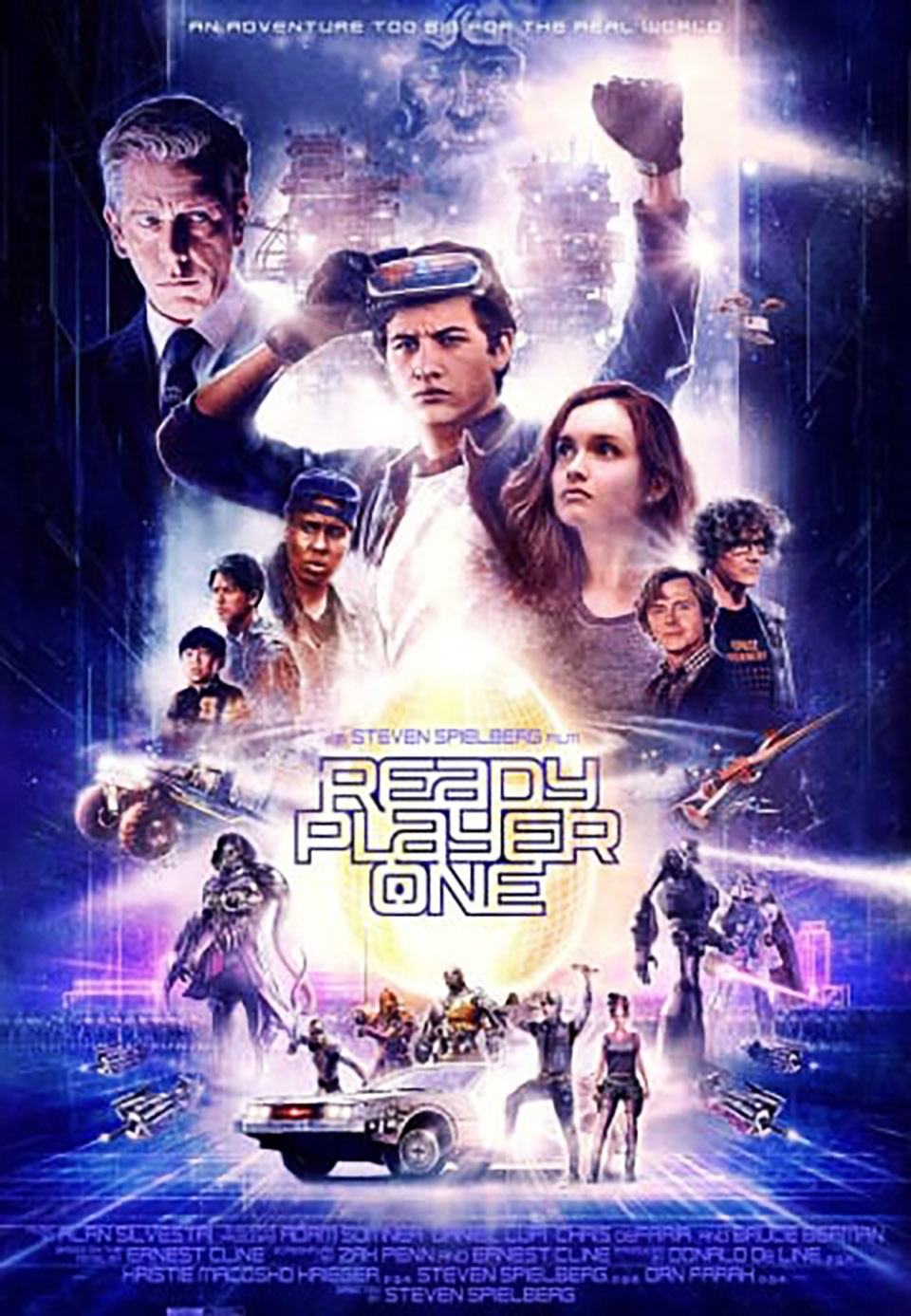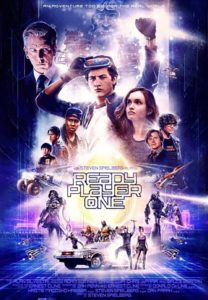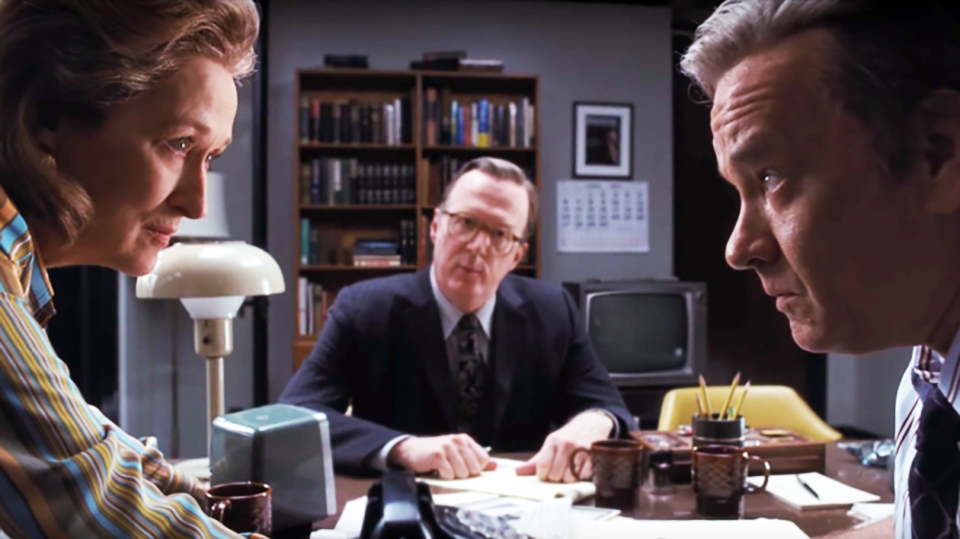

Ready Player One has grossed $395.2 million.
By Zach Landau | Editor-in-Chief
04/12/2018
I was really ready to get angry about Ready Player One. The novel that serves as the source material for this movie embodies everything I despise about nerd culture: incessant gatekeeping, mindless referencing, shallow theorizing and so much more. Not only that, but excerpts that made their way to my social media feeds exude a type of unrefined (read: bad) writing typical of fan fiction.
And it is horribly bigoted. Can’t forget that quintessential quality of “quirky” nerd culture.
So I was already down to hate this movie. After a string of watching mediocre junk, my anticipation to feel unrequited rage was overwhelming, and I bought my ticket salivating from my rabid, foaming mouth.
But boy if Steven Spielberg doesn’t save this transparent menagerie of corporate cynicism from total oblivion. Thanks to his careful touch, Ready Player One isn’t the worst film out there, but an insurmountable number of obstacles stop this movie from rising above festering flesh wound.
Spielberg is good, but he isn’t that good. In fact, the basic action-film structure was a great surprise while watching. The plot is as one would expect: Put-upon loser discovers something no one else notices because he’s weird enough to look in the right places, and then his life gets turned upside down as he goes on a life-threatening adventure, something, something, climax, then fin, then credits.
Sprinkled throughout this trite adventure are the hundreds of references to bits of nerd memorabilia. To say that Ready Player One leans heavily on nostalgia would be the most understated statement in the history of statements, and boy does the film push that feeling hard. Callbacks and little Easter eggs litter the graphical anarchism in the OASIS (the virtual world that the majority of the film takes place in), but to Spielberg’s credit, these almost never distract from the actual pacing of the film.
No, that’s the dialogue’s job. The aforementioned writing in the novel unfortunately makes its way into the movie at some points, with a lot of dialogue feeling stilted despite OK performances from the cast. Lines can slip into the abysmal territory every once in a while, and there are some truly groan-worthy parts when a character will basically spew the first paragraph on some cultural artifact’s Wikipedia page. And someone says, “My mother’s sister,” at one point when they literally can just say aunt. That’s your aunt, my dude. Your mother’s sister is your aunt.
Did no one look at this script?
The whole movie screams “no.” The “rules” of the OASIS — and the real world, for that matter — make no sense. What’s worse, not only don’t they make sense in a logical sort of way, but in a metaphoric sense as well. Our protagonist Wade Watts (Tye Sheridan) claims at the beginning of the film that you can be and do whatever you want in the OASIS, but that’s patently false. There is a “game” going on in the virtual world, but there aren’t any real objectives besides the one “Easter egg” left in by the creator.
Which I have to ask: Does anyone know what an Easter egg really is? Like, an entire game isn’t an Easter egg. That’s an objective. An Easter egg is something like a reference or a joke.
And on references: Could they be even more irreverent? For a movie selling itself on the premise that you can watch your favorite corporate icons interact with each other, the creators have done a poor job of translating them to the big screen. The examples of mismanaged property would be too long to list (I can think of around ten egregious examples off the top of my head), but there are two instances that stand out to me:
One, the soundtrack uses “Blue Monday” as background music in a club, which – come on. That’s a song about someone’s suicide. And I know that people ignore the meanings of songs all the time, but does a multi-million dollar blockbuster have to do the same?
Two, there’s a moment in the movie that, for the sake of avoiding spoilers, I won’t describe in detail, but is based on a popular horror film. For a brief five minutes, Ready Player One turns into a good movie. Every joke lands, the pacing is perfect, the shots are really dramatic and fun. I was starting to enjoy myself until I realized the only reason this scene turned out so well is because it’s probably the only reference that Spielberg actually knew and felt comfortable working with.
Which is a cruel irony. The best example of a reference in the movie just underscores how abysmally short Ready Player One comes up. If Warner Bros. brought in a director who actually knew what all the references are, the film would invariably fall back into fan-fiction dredge, but because they got Spielberg, the end product feels soulless and hollow.
And it really shouldn’t be. The content primes Ready Player One to be a fantastic film about self-expression in the digital age. Spielberg should have put this theme at the heart of the film, but he misses it bizarrely. It’s still there, but a veritable torrent of anti-corporate messaging and a prosaic, heartless, lifeless, soulless teenage love story submerges any ability to grasp the characters’ personal tastes.
Don’t get me wrong, I would watch a Spielberg film about teenagers overthrowing their corporate overlords, but there’s a much better story in Ready Player One than that. And frankly, this movie doesn’t even do its story well anyway. At no point in the movie does someone reflect that this “war” against a corporation is taking place within the space of a corporate-made virtual world, or question how their expression is intrinsically linked to corporate intellectual property, or any type of introspection on the part of any character.
The “real world” plot in this dumpster fire also makes no sense and has no basis in reality. IOI, the evil gaming and technology megacorp of the film, is trying to figure out the puzzles to obtain control of the OASIS, which most people access with their VR tech. But there’s no reason why IOI couldn’t just make the software incompatible with their hardware and design their own version of the OASIS instead. The entire plot of the movie is just the result of bad planning — or, more likely, the maligned and narrow understanding of how businesses work, courtesy of the writers.
And there’s this subtext of a corporate oligarchy running the world, and that any actual government doesn’t care about the poor. But later on, the climax of the plot is resolved by the government answering the call of the poor. And IOI has a private army to handle repossessions, but really they run this debtors prison basically, which is illegal. And even if it wasn’t, there’s no reason why the government wouldn’t just be running them or outsourcing them to IOI. The way it’s set up now, IOI is basically running its own country and hemorrhaging millions of dollars to make equipment and to finance researchers into figuring out the inane answers of simple riddles that literally any 8-year-old could figure out just out of sheer curiosity. There’s also Twitch streams in the future, but it’s implicit that people’s only entertainment is the OASIS…
Nothing in this movie makes sense.
Reading this review, one could easily come away thinking that I don’t believe Ready Player One should exist. And they would be right.
However, as much as I hate this film for everything that it represents, I can’t deny that it at least functions on some sort of technical level. It isn’t incomprehensible or confusing, and to its credit, it does shirk a lot of the uncomfortable schlock from the source material. But is functioning really what people expect from Spielberg? Is functioning what passes for entertainment? I would sure hope not.
All in all, Ready Player One is a tired and tiring mess that’s only notable claim to fame is its controversial origins and the endless branding that went into it. Do not watch unless morbidly curious, and even then, I would suggest holding off until it leaves theaters. Full-price isn’t worth the admission on this one.



